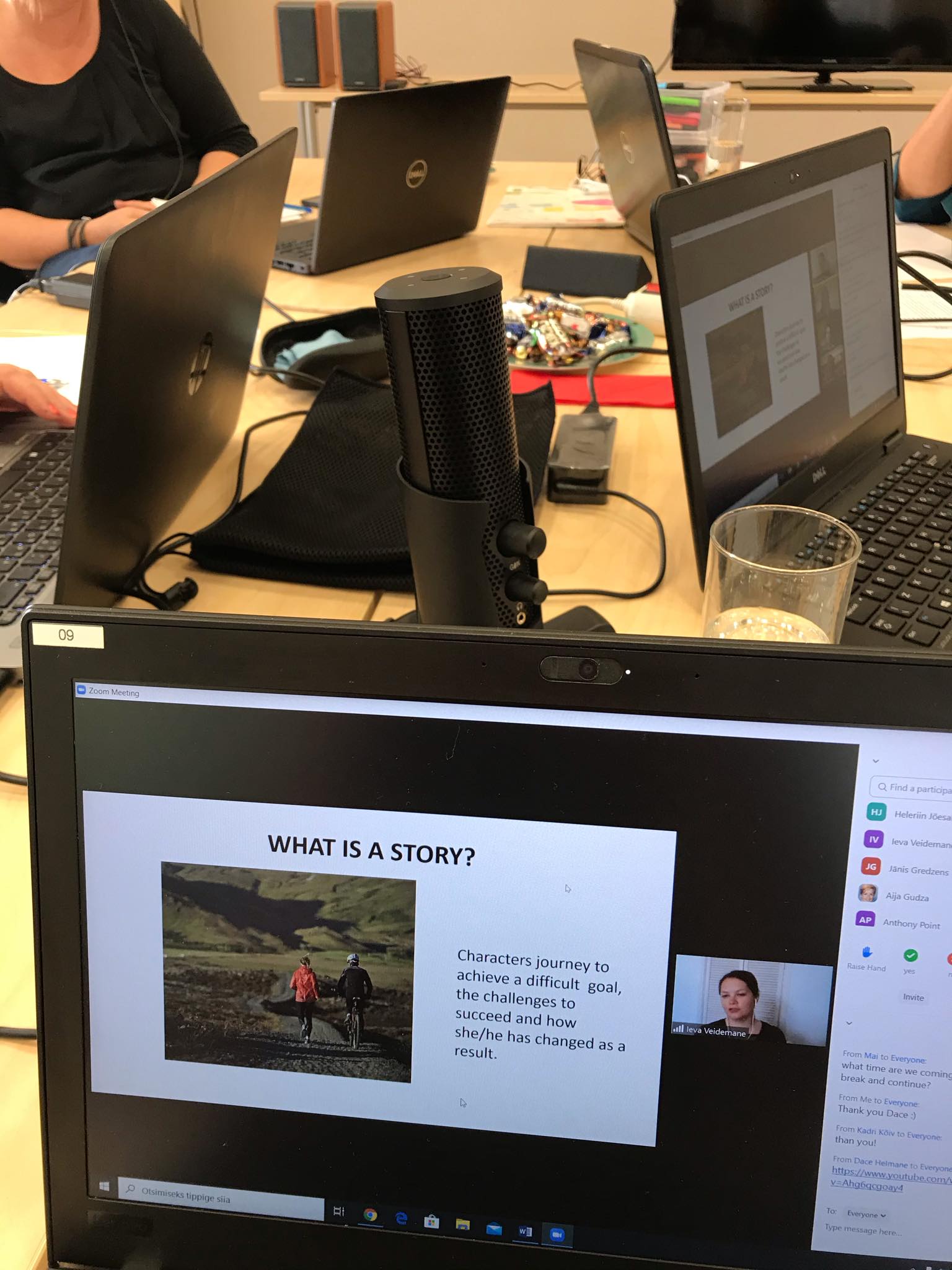Despite the situation due to the COVID-19 crises the ERASMUS+ strategic cooperation project EFFECT team continues to work on the development of the curriculum and toolkit for teachers/educators working with low-educated learners with the aim to support the development of basic skills. This situation makes us realize even more how important basic skills are.
In our project the focus is especially on social and learning skills. The importance of the social dimension of a learning environment came this spring perhaps to all people who had to learn and teach via online especially clear. And the crisis is not over. We still have to adapt in the online learning environment. And this does not mean to just use skillfully the web tools/environments, but also to adjust the learning approach, methods etc. The question of how we learn in the virtual learning environment becomes important. And even more important – how to support learners in e-learning?
Looking a bit back …
Due to the lockdown of countries we had to cancel our second learning event in Latvia, which aims to share the best practices and expertise of partner organisations. This time it was Spring Valley’s turn. We postponed it to August, but failed to meet again due to the new quarantine rules. We decided not to wait and go online. With this decision we missed the opportunity for physical interaction but we gained experiences with online training and the necessary skills for either being the organisers and trainers of it or as learners as well.
All roles demand extra know-how and every experience in a technologically rich environment helps to adapt to the new way of learning better. As learners we realized quickly that it is quite exhausting to be all day in front of a computer. A trick we used was to gather as country groups. So even though the training was online, as country groups we were together and it created the possibility to have partially separated discussions. So it actually became a blended learning event.
Good, that one of our training topics was focused on virtual training methods, so we had right away the chance to focus on how to make the best of the situation where physical meetings are not an option. Spring Valley’s trainer and communication and marketing expert Ieva Veidemane was demonstrating her skills by sharing useful tips and methods and also examples of different web environments. She also covered the topic of storytelling as a method in the training, reminding us all how powerful stories are and how they are connected with learning.
Another trainer Dace Helmane was the one who open the topic of diversity management and adult learning. This led us to a more deeper understanding of how important it is to understand the idea of diversity during the training process working with adults with different backgrounds, beliefs, nationalities, age etc. This theme was especially important in the context of our project, as this knowledge about diversity affects the choice of teaching methods and learning process itself.
The leaders and trainers of Spring Valley Ruta Luse and Janis Gredzens focused on the topic training the trainers, which again as a topic is in the heart of our project. This included the learning cycle, training cycle, designing the training etc. The idea of the importance of the “trainers voice”, meaning every trainer has to work on his/hers authenticity, became a key point of this session.
To help to understand the learners better but also ourselves as trainers, Spring Valley trainer Zanete Drone helped us by making an introduction to the world’s no 1 psychometric tool – Myers-Briggs Type Indicator (MBTI®) which is based on a world-famous psychologist’s Carl Gustav Jung finding about the aspects that determine differences in human behavior. During this session we learned about the different personality types, their strengths and the most effective ways to manage these strengths – the key things that are very crucial for trainers to make the learning process as efficient as possible, so learners could grow in many different ways.
Looking a bit forward …
In the beginning of next week – on the 10th of November – we will also start with the third learning event by having the first day online. We are looking towards the good practices and know-how of our partner organisation topcoach from Slovakia.
The focus moves to topics like gamification in training design and also which techniques of motivation and feedback can help to provide training more effectively while training (lower skilled) adults. The topcoach trainers Ingrid Schostokova Krupickova, Jana Lednarova and Zora Inka Groholova will share their good expertise.

